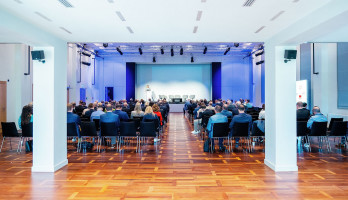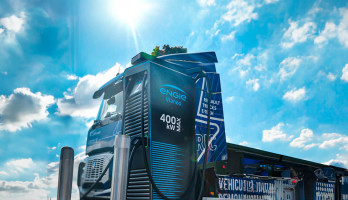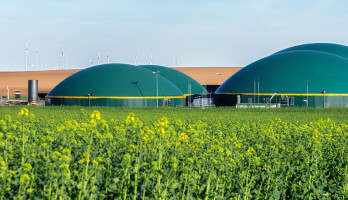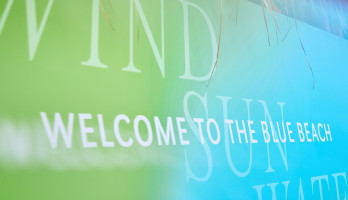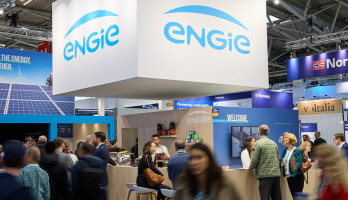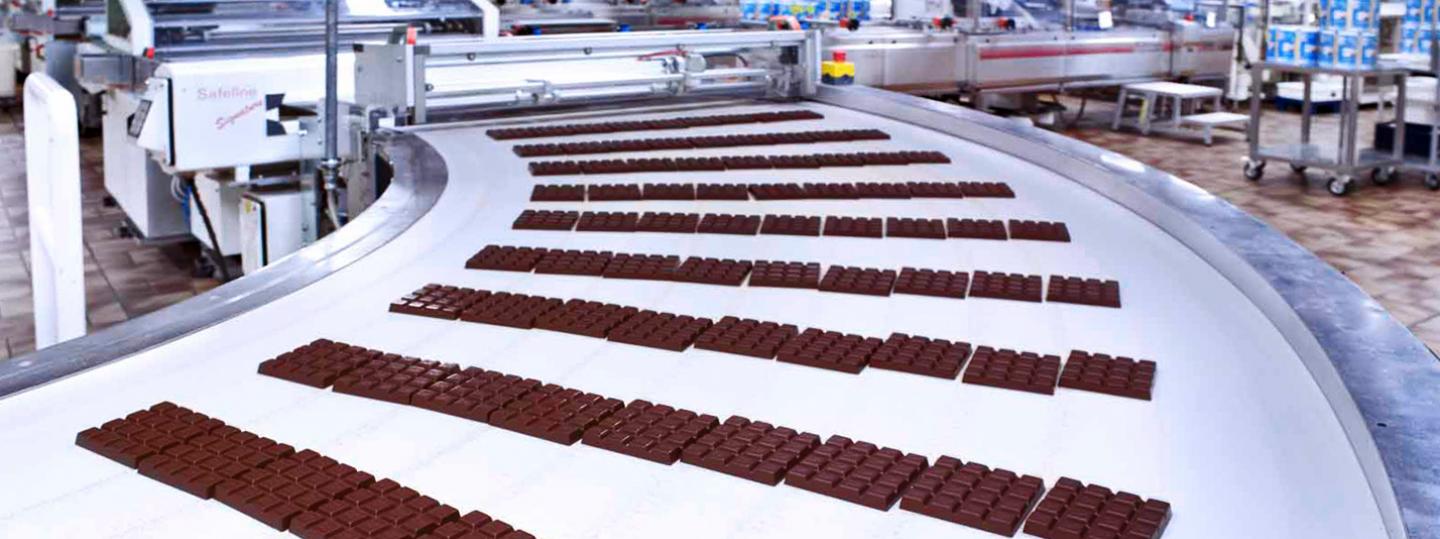
More energy efficiency at Ritter Sport: Green energy for colorful squares
Square, practical, efficient: Together with ENGIE Deutschland, Ritter Sport significantly increases its energy efficiency in the Waldenbuch plant by means of the jointly implemented measures. From now on, the chocolate manufacturer will save around 130,000 euros in energy costs and more than 600 tons of CO2 every year. This efficiency project is thus a model for many food manufacturers.
Target: Keep energy emissions low in chocolate production
Germans love chocolate: Three-quarters of Germans enjoy the sweet delicacy at least once a week, almost a fifth even indulge in it every day. But a good chocolate is not only characterized by its irresistible taste – the characteristic delicate melting must not be missing. In order to achieve the recipe for success, exactly defined production conditions are important for every single step in the manufacturing process.
But how can these extremely high energy supply requirements be met throughout the process while at the same time keeping energy consumption and CO2 emissions as low as possible? This efficiency project for Ritter Sport shows that this is possible.
More energy efficiency, more sustainability
The popular colorful chocolate squares have always been produced by Alfred Ritter GmbH & Co. KG solely in Waldenbuch, Swabia. From there, the treats are exported to more than 100 countries. The world-renowned family-owned company currently employs around 1,600 people and generated sales of 480 million euros in 2019.
As sustainability is firmly anchored in its corporate philosophy, the chocolate producer attaches the utmost importance to minimizing the impact of production on the environment. This includes reducing the energy consumption for building climate control. ENGIE Deutschland was commissioned with the energy management and supported Ritter Sport in its mission "Zero Carbon Transition as a Service" in the transition to climate neutrality. Thanks to the energy efficiency measures, the company is reducing the energy consumption for climate control of the plant by 50 percent, reduces the energy costs by 130,000 euros annually and saves more than 600 tons of CO2 – and thus reduces its ecological footprint in the long term and on a sustained basis.
Professional and smooth implementation of measures
These enormous energy savings are the result of an elaborate complete package of various individual services, which ENGIE Deutschland developed specifically for energy savings in the approximately 6,000 square meter production building of Ritter Sport. First, the specialists for technology, energy and service developed a tailored system concept with an investment volume of 445,000 euros, which meets the high demands of food production and optimally meets the specific customer requirements.
The team also carried out the implementation on site independently, so that the coordination effort for Ritter Sport was reduced to a minimum. All construction works were completed in December after an eleven-month conversion phase – while the operation could continue smoothly without any production shifts and while complying with the highest requirements.
What specifically has been implemented?
The measures implemented are complex: Among other things, ENGIE Deutschland installed volume flow controllers and temperature sensors distributed over 26 zones and four building levels in the factory, which now regulate the ventilation and extract air as required. This will reduce the average volume of air pumped from the previous 300,000 cubic meters/hour to around 165,000 cubic meters/hour. In addition, ENGIE upgraded the existing control technology by around 400 additional data points with the aim of further increasing energy efficiency.
Saving energy means saving money
For Ritter Sport, these extensive energy efficiency measures have several advantages: On the one hand, the special room climate requirements in production are now observed more precisely. On the other hand, energy consumption for building climate control is reduced by more than 50 percent. As a result, Ritter Sport significantly reduces operating costs – by 77,000 euros for electricity, 26,000 euros for heat and 27,000 euros for cooling. In short: The chocolate manufacturer saves a total of 130,000 euros per year – a sum that is impressive.
State support for more energy efficiency
As a result of this sustainable reduction in energy costs and CO2 emissions, Ritter Sport receives state support: The Federal Ministry for Economic Affairs and Energy (BMWI) is supporting the measures to save electricity as a special example of energy efficiency in industry with a six-figure sum. The state subsidy reduces the payback period for Ritter Sport by two years to a total of only three and a half years. Here too, the ENGIE experts took care of the entire organization: from the application for funding to the proof of funding. Since February 2020, the subsidy and savings certificate is now available and Ritter Sport benefits from the projected CO2 and energy savings – and with this success can serve as a model for other food manufacturers.
Our Expert


